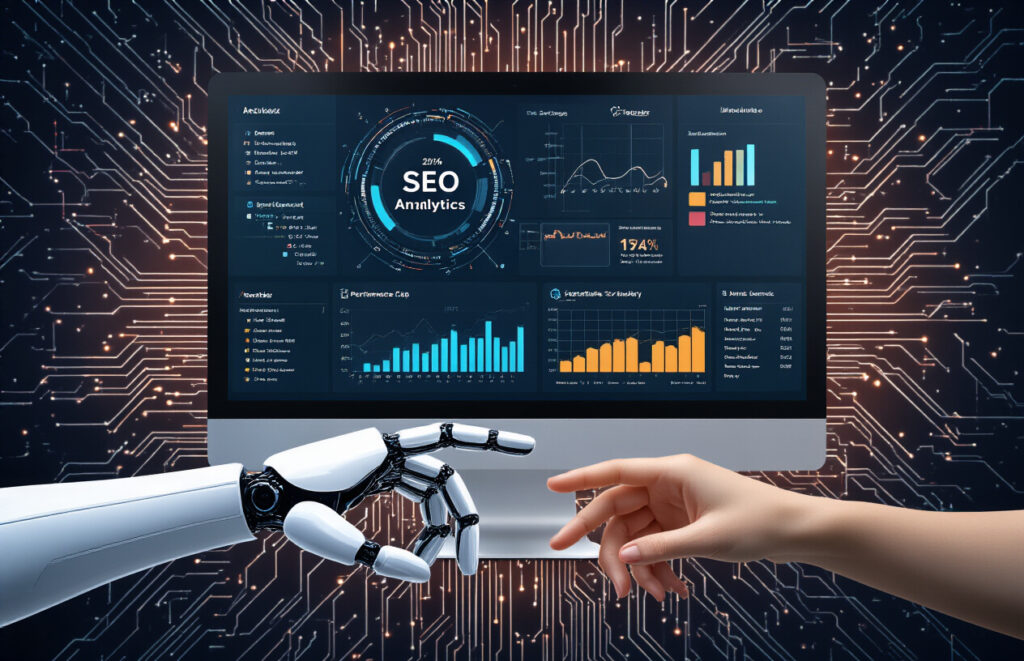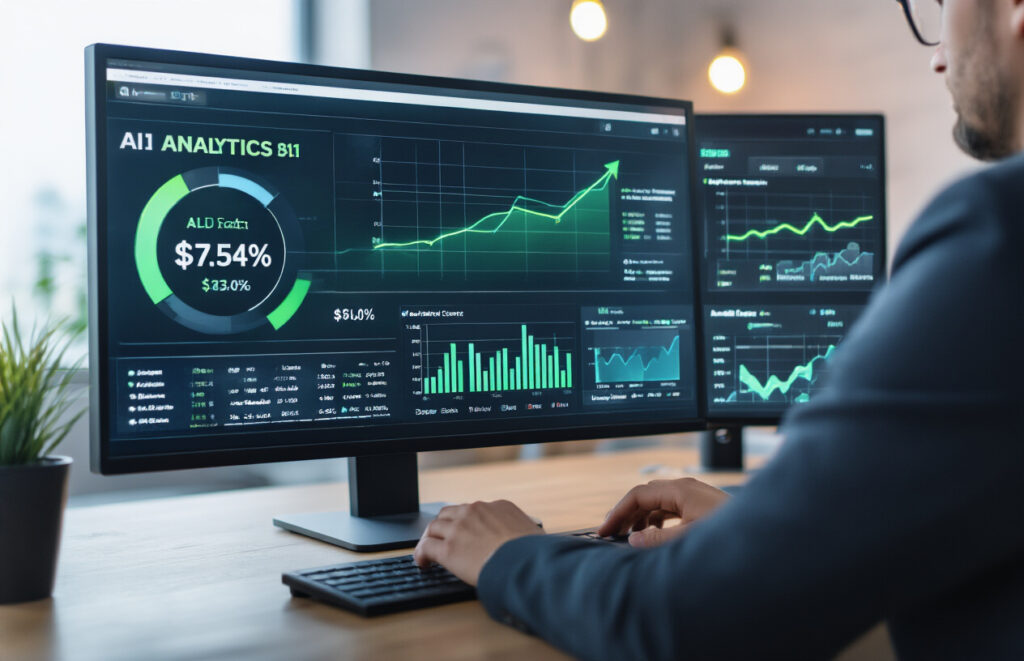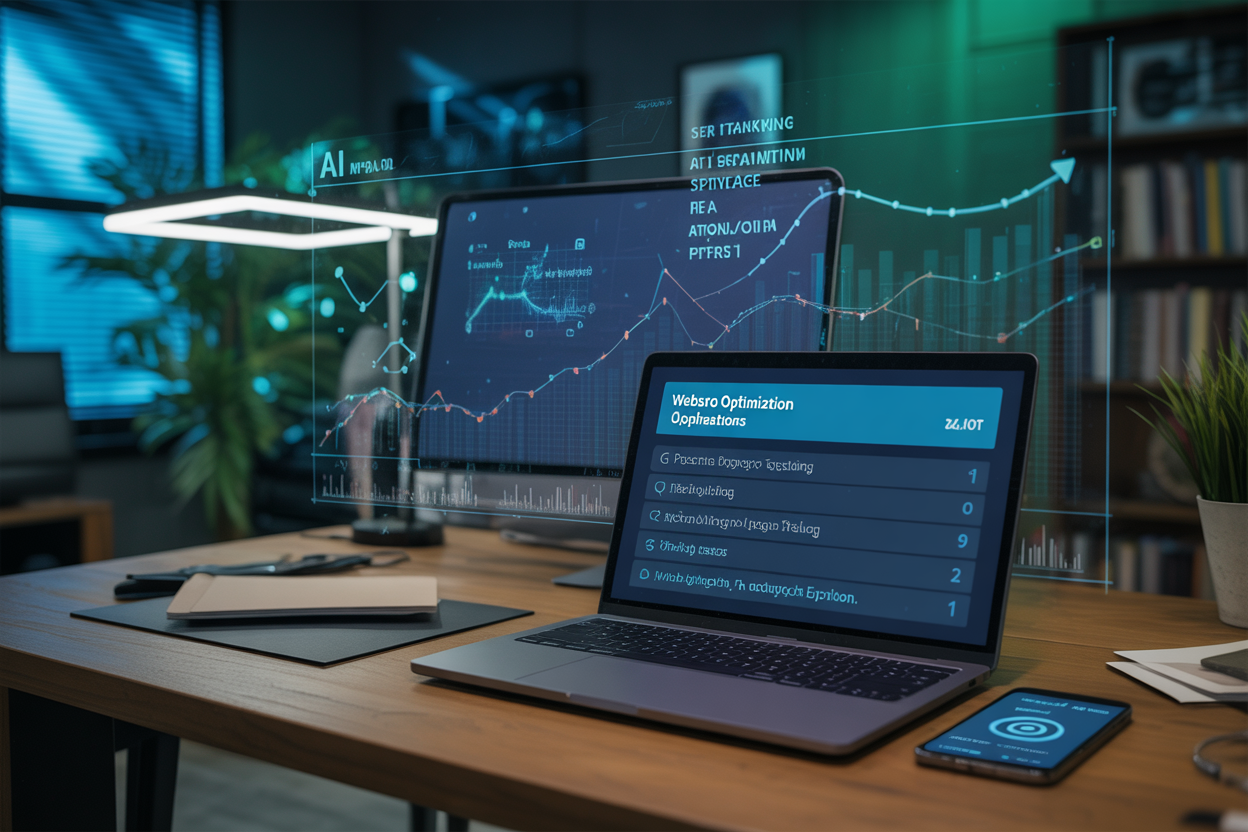SEO is no longer about guesswork—AI in SEO is turning it into a precise science. If you’re still relying on outdated tactics, you’re falling behind.
Here’s the truth: AI SEO tools are now essential for dominating search rankings. In this guide, we’ll break down 10 actionable ways AI can revolutionize your SEO strategy—proven techniques that are driving 3x more traffic for savvy marketers.
1. AI-Powered Keyword Research: Find Hidden Gems

Forget manual keyword hunts. Modern AI in SEO solutions:
- Search trends in real-time
- Long-tail keywords with high intent
- Competitor gaps you can exploit
Tools like SEMrush & Ahrefs use machine learning—a perfect example of AI SEO tools predicting winning keywords before they trend.
2. Content Optimization That Actually Ranks

Writing great content isn’t enough—it needs to match what Google’s AI favors.
AI SEO tools like SurferSEO & Clearscope:
- Compare your content to top-ranking pages
- Suggest ideal word count, headers, and semantic keywords
- Improve readability for both bots & humans
This SEO strategy helps pages climb rankings faster.
3. Automated Technical SEO Fixes

Broken links? Slow load times? AI catches issues before they hurt you.
AI tools like Screaming Frog & Deepcrawl:
- Scan 1,000s of pages in minutes
- Auto-fix missing alt tags, redirects, and duplicate content
- Predict crawl errors before they happen
No more tedious manual audits—just a flawless technical foundation.
4. Voice Search Domination

50%+ of searches are now voice-based. AI helps you adapt by:
- Identifying natural-language questions (e.g., “best pizza near me”)
- Structuring content in Q&A format
- Optimizing for local intent
Tools like AnswerThePublic reveal exact voice queries your audience uses.
5. Smarter Link Building with AI

Backlinks still rule—but finding them manually is outdated.
AI-driven tools (e.g., Pitchbox, NinjaOutreach):
- Find high-authority link prospects in minutes
- Personalize outreach emails for higher response rates
- Track toxic backlinks before Google penalizes you
This transforms link building from art to science in your SEO strategy.
6. Predicting Google Algorithm Updates

The role of AI in digital marketing includes forecasting updates by:
- Analyzes historical data + current trends
- Alerts you to vulnerable pages
- Recommends preemptive optimizations
Never get blindsided by an update again.
7. Hyper-Personalized User Experiences

Google rewards sites that keep visitors engaged. AI helps by:
- Serving dynamic content based on user behavior
- Adjusting CTAs, layouts, and recommendations in real-time
- Reducing bounce rates with smarter internal linking
8. AI-Generated Content (Done Right)

Yes, AI can write—but the key is human-AI collaboration.
- Use tools like Jasper or ChatGPT for research & drafts
- Human editors add expertise + brand voice
- Optimize for E-E-A-T (Experience, Expertise, Authority, Trust)
This combo produces high-quality, scalable content.
9. Competitor Analysis on Steroids

AI exposes exactly why competitors rank higher—and how to beat them.
- Reverse-engineers their keyword + backlink strategies
- Identifies content gaps you can fill
- Tracks their SERP feature dominance
Knowledge = power.
10. Measuring Real ROI from SEO

No more vague metrics. AI connects rankings → traffic → revenue.
- Tracks multi-touch attribution (not just last-click)
- Predicts future traffic based on current trends
- Generates executive-friendly reports
Prove SEO’s value with hard numbers.
Final Verdict: AI in SEO is Non-Negotiable
The gap between AI-powered SEO and traditional methods is widening fast. Start with 1-2 tools (e.g., SurferSEO for content, Ahrefs for keywords), then scale up.
Remember: AI handles the grunt work—your job is strategy + creativity. Together, they’re unstoppable.
FAQ
Q: How does AI in SEO differ from traditional methods?
A: It brings data-driven precision to what was previously guesswork.
Q: Which AI SEO tools offer the best value?
A: SurferSEO (content) and SEMrush (keywords) provide strong ROI for beginners.
Q: Can AI completely replace human SEOs?
A: No—it augments human strategy with superior data processing.



















